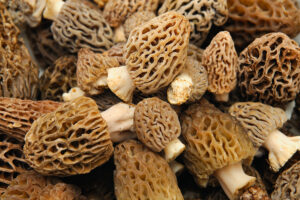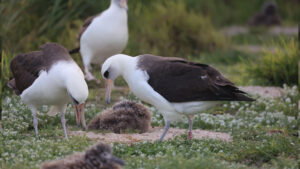Shawn Hayes is one of the world’s best falconers. Even though the sport has been around for decades, Hayes helps helps make it relevant for the modern day. Devoting his life to falcons, Hayes also shows young people of color not to be deterred when pursuing their dreams.
When Hayes was a child, school teachers told him that he should aspire to mow lawns as a profession. Or be a garbage collector. But he had other ideas.
His love for the outdoors propelled his decision to work with falcons. When he first encountered raptors, he was naturally attuned to their well-being. Eventually, he began training them.
“I might not have the fattest wallet but I look at these mountains and it’s cool to me,” says Hayes. “I just want to be outside.”
Training is based on trust, not discipline
First, he makes the bird feel comfortable with him. That involves immense effort with seemingly small rewards in return. Falcons don’t react to discipline, so training is based on a trusting partnership.
The sport is all-consuming. You invest everything into a bird and “before you know it, its taken over your life,” says Hayes.
His work is now admired globally, but he still needs to keep a watchful eye for negativity that comes with his skin tone. Once, he had a falcon stolen. Another time he was confronted with a verbal racist attack.
Whether Hayes acquires his falcons through captive breeding or from the wild, he devotes himself entirely to them.
Hayes documents their weight, the temperatures they are exposed to, and the speeds they travel. He even checks their excrement to ensure that they are processing food properly. An unhealthy falcon is a reflection of the falconer, Hayes believes. In balance, Hayes also aims to have positive energy around his birds. “My energy matters,” he says.
He used to compete in falconry meets, which took him all over the world. He has now stopped competitive falconry. Instead, he often draws large audiences by lecturing about the birds.
He discusses the bond required between bird and falconer as the basis of performance. When he releases a falcon to catch prey, he trusts that it will return. In training, Hayes travels widely in order to introduce his bird to a wide variety of prey. If he releases his bird in places where there isn’t enough prey, the bird won’t trust him. It won’t return.
The fastest animal on earth
Historically, falconry was a way for villagers to gather food. They are exceptional predators. Built for speed, the falcon can fly at speeds up to 400kph. Their eyesight is 8-10 times more acute than humans. Pointed wings and a slender body allow the bird to fly quickly and undetected. Even early aviation was modeled on a falcon’s form.
In those days, you wouldn’t have seen someone of Hayes’ color with a falcon. Today, it seems unfathomable that skin tone can affect how a person is accepted. But Hayes proves none of that matters when you pursue your dream to excellence.






